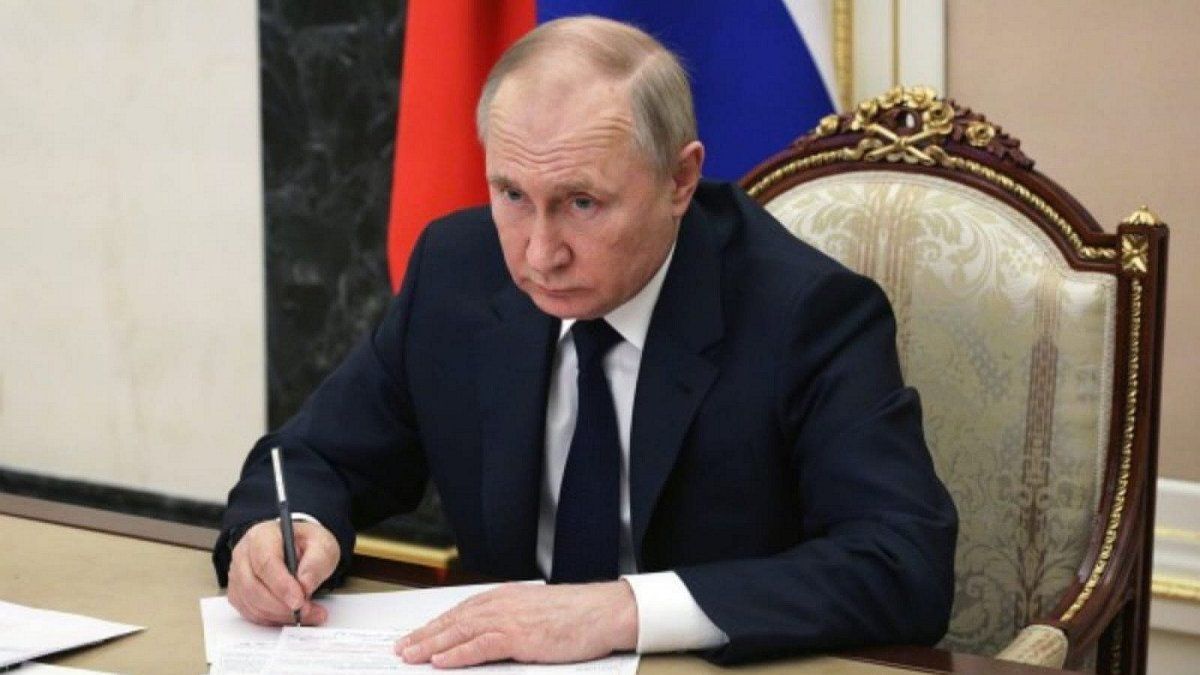After the rocket attack on Israel, Prime Minister Benjamin Netanyahu announced retaliation. What is the threat now in the conflict that is increasingly escalating?
The Revolutionary Guard Air Force, Iran’s elite force, has directly attacked arch-enemy Israel for the second time this year. They fired around 200 rockets targeting air bases and the headquarters of the Mossad secret service. According to Israeli information, the attack was largely repelled – but Prime Minister Benjamin Netanyahu does not want to leave it unanswered. Questions and answers on the increasing escalation of the conflict:
What might an Israeli counterattack look like?
Israel has already announced that it will respond decisively to the rocket attack. However, the military or the government did not name possible targets or the timing. However, given the Jewish New Year Rosh Hashanah, which is celebrated on these days, the counterattack is unlikely to be imminent.
The New York Times reported, citing US officials, that in one possible scenario Israel could attack Iran’s nuclear facilities. In particular, the enrichment facilities in Natans, the heart of the Iranian program, could be targeted. The facility, deep beneath a mountain range in central Iran, has long been considered a possible target in the conflict between the Islamic Republic and Israel. The West has repeatedly accused Tehran of seeking nuclear weapons.
Attacks on the infrastructure of the Iranian oil and gas industry could also have a serious impact on the leadership of the resource-rich country. Despite strict international sanctions, the government continues to derive its main revenue from oil sales, with China being the main buyer.
Experts assume that leading politicians or military commanders themselves could also be possible targets. In recent weeks, Israel’s military and intelligence services have shown by killing leaders of the Islamist Hamas and the Lebanese Hezbollah militia that they can reach their enemies even in well-protected bunkers deep underground. However, such attacks probably have the greatest potential for escalation.
How well positioned are Israel and Iran militarily?
The Islamic Republic of Iran has one of the largest armies in the Middle East, with more than 600,000 active soldiers and around 350,000 reservists. In recent decades, the country has invested significantly in its missile and drone arsenal. The attack on Israel also used hypersonic missiles for the first time, which can reach Israel in just a few minutes. The locations of the missile silos and drone bases are secret, but some are said to be protected deep underground or in mountainous regions.
The biggest weak point is Iran’s air force. The fleet is considered to be very outdated and its modernization is stalling due to international sanctions. Many planes and helicopters date from before the Islamic Revolution in 1979, when the country had close relations with the USA. The same applies to Iran’s air defense, which would be significantly inferior to modern fighter aircraft in the event of an attack by Israel.
Israel’s military strength exceeds Iran’s in many areas. The air force is considered one of the most modern in the world, with advanced fighter jets and drone technology. Thanks to its close military partnership with the USA, Israel has access to the most modern weapons systems. Israel’s foreign intelligence agency Mossad is known for its espionage and sabotage operations. Furthermore, it is considered certain that Israel has nuclear weapons, although it has never been officially admitted.
The confrontation threatens to escalate – who is at greater risk?
Since the Gaza war broke out around a year ago, the decades-long shadow war between Iran and Israel has repeatedly threatened to escalate and develop into a larger regional conflagration. Israel has been facing a multi-front conflict with militant Islamist groups since the Hamas terrorist attack on October 7, 2023. Tehran has been supporting these militias for decades in the fight against their common arch-enemy.
Netanyahu’s government has come under international criticism because of the high number of victims in the Gaza Strip and a possible invasion of Lebanon. At the same time, the army and secret service recorded military successes with the killing of Hamas foreign chief Ismail Haniya and Hezbollah Secretary General Hassan Nasrallah. The Iranian leadership may have felt pressured to carry out the missile attack after supporters accused it of inaction.
An incalculable risk for Iran’s political and military leadership is the Iranian people themselves. A large part of society in Iran is critical of the government and the Islamic system of rule after years of political repression. In view of the military tensions, the new President Massoud Peseschkian, who is considered to be moderate, was unable to change anything. He recently tried to reconnect with the West and called for new nuclear talks to ease sanctions in order to deal with the economic crisis in the country.
What role does the USA play?
Israel is likely to receive support from the USA. The most important ally is fully helping the Jewish state to defend itself against Iranian missiles. At the same time, the US administration under President Joe Biden is afraid of being drawn into a conflagration Middle East war just weeks before the presidential election. In the event of a retaliatory attack on Iran, Israel could rely on American help, be it in the form of intelligence information or the provision of bunker-busting bombs. “Israel would do well to coordinate its response with the US administration before it strikes,” wrote the pro-government newspaper Israel Hajom. A few weeks before the elections, Washington does not want to become involved in unmanageable military activities.
Source: Stern
I have been working in the news industry for over 6 years, first as a reporter and now as an editor. I have covered politics extensively, and my work has appeared in major newspapers and online news outlets around the world. In addition to my writing, I also contribute regularly to 24 Hours World.




